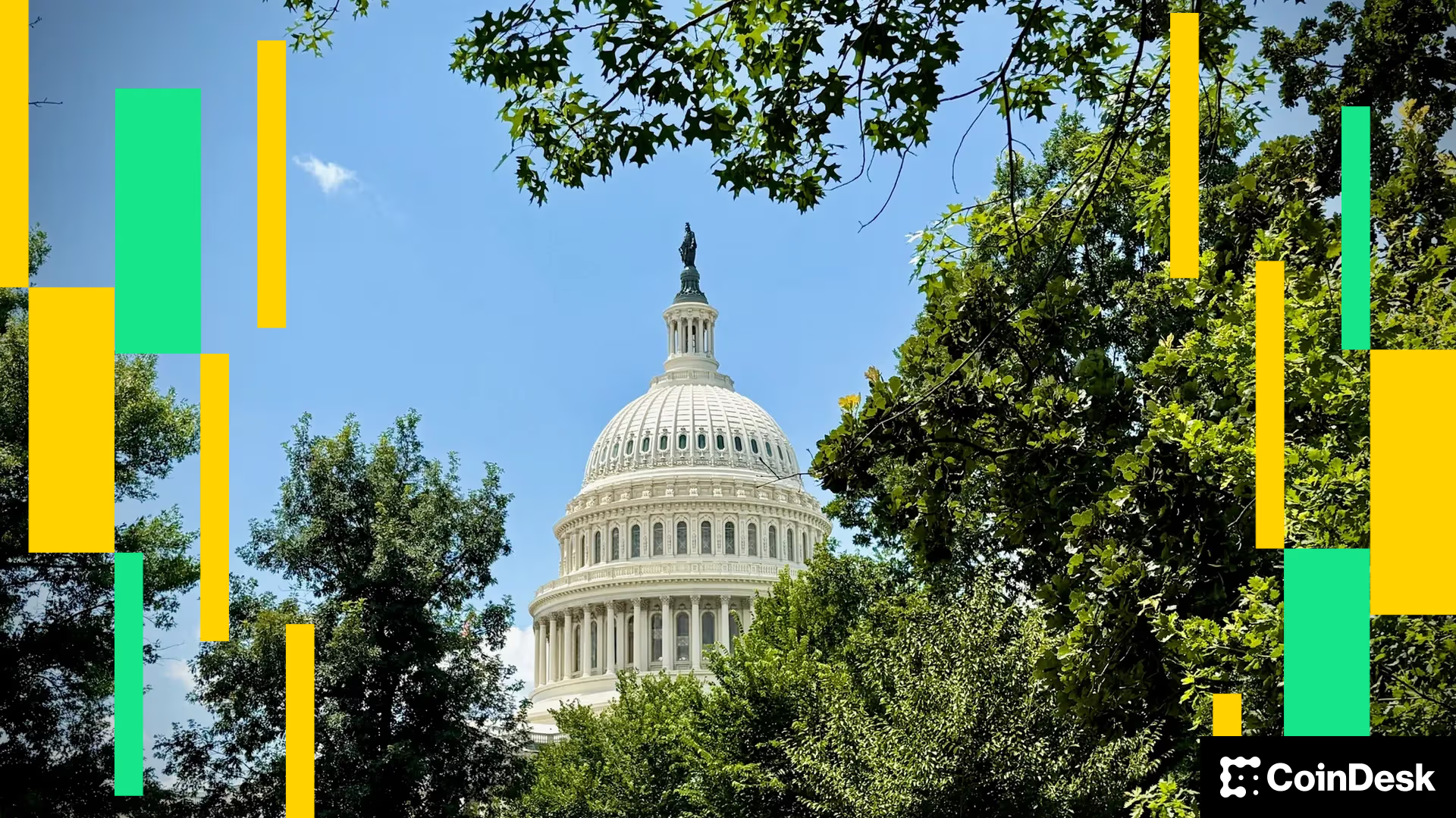As the possibility of a U.S. government shutdown looms, market participants are weighing its potential impact on the cryptocurrency sector, which increasingly intersects with traditional financial and regulatory systems. While short shutdowns often have minimal direct consequences for digital assets, a prolonged one could create ripple effects across the industry.
Regulatory Delays and Market Uncertainty
One of the most immediate impacts would be on the regulatory front. Agencies such as the Securities and Exchange Commission (SEC) and the Commodity Futures Trading Commission (CFTC) could face operational slowdowns or temporary suspensions of non-essential activities. This would likely delay pending crypto-related decisions — including exchange-traded fund (ETF) approvals, enforcement actions, and new guidance on digital asset classification.
“Even a few weeks of inactivity could stall market progress,” said one policy analyst. “Crypto companies rely on regulatory clarity, and any delay in decision-making prolongs uncertainty.”
Liquidity and Market Sentiment
Historically, government shutdowns have contributed to broader market caution, prompting investors to seek safety in stable assets. For cryptocurrencies, the effect can be mixed: some traders view Bitcoin as a hedge against political dysfunction, while others reduce exposure amid increased volatility. A drawn-out shutdown could also impact liquidity and trading volumes, particularly if risk appetite weakens across financial markets.
Macroeconomic Implications
If the shutdown disrupts government spending or delays key economic data releases, analysts say it could complicate the Federal Reserve’s monetary policy outlook—an important driver for crypto markets. Prolonged uncertainty might strengthen Bitcoin’s narrative as a decentralized alternative, but it could also deter institutional investors waiting for a stable policy environment.
Building Resilience Amid Uncertainty
Despite potential short-term disruptions, the crypto industry has shown resilience during previous macroeconomic shocks. Many projects continue to operate globally, independent of U.S. government activity, while stablecoins and decentralized finance (DeFi) protocols offer alternative liquidity mechanisms outside traditional systems.
As Washington grapples with fiscal gridlock, crypto investors will be watching closely—not only for the economic fallout but also for signs of how the digital asset ecosystem responds to yet another test of its independence from traditional financial structures.


 Bitcoin
Bitcoin  Ethereum
Ethereum  Tether
Tether  XRP
XRP  USDC
USDC  TRON
TRON  Lido Staked Ether
Lido Staked Ether  Dogecoin
Dogecoin  Cardano
Cardano  Figure Heloc
Figure Heloc  WhiteBIT Coin
WhiteBIT Coin  Wrapped stETH
Wrapped stETH  Wrapped Bitcoin
Wrapped Bitcoin  Zcash
Zcash  Hyperliquid
Hyperliquid  Bitcoin Cash
Bitcoin Cash  Chainlink
Chainlink  USDS
USDS  Binance Bridged USDT (BNB Smart Chain)
Binance Bridged USDT (BNB Smart Chain)  LEO Token
LEO Token  Stellar
Stellar  WETH
WETH  Wrapped eETH
Wrapped eETH  Ethena USDe
Ethena USDe  Litecoin
Litecoin  Coinbase Wrapped BTC
Coinbase Wrapped BTC  Monero
Monero  Hedera
Hedera  Avalanche
Avalanche  Sui
Sui  Shiba Inu
Shiba Inu  Uniswap
Uniswap  Polkadot
Polkadot  Dai
Dai  Ethena Staked USDe
Ethena Staked USDe  Toncoin
Toncoin  Cronos
Cronos  USDT0
USDT0  World Liberty Financial
World Liberty Financial  sUSDS
sUSDS  MemeCore
MemeCore  Mantle
Mantle  PayPal USD
PayPal USD  Canton
Canton  Bittensor
Bittensor  NEAR Protocol
NEAR Protocol  USD1
USD1  Internet Computer
Internet Computer  Aave
Aave  Aster
Aster  Currency One USD
Currency One USD  Bitget Token
Bitget Token  OKB
OKB  BlackRock USD Institutional Digital Liquidity Fund
BlackRock USD Institutional Digital Liquidity Fund  Ethereum Classic
Ethereum Classic  Falcon USD
Falcon USD  Aptos
Aptos  Pi Network
Pi Network  Tether Gold
Tether Gold  Pepe
Pepe  Ethena
Ethena  Jito Staked SOL
Jito Staked SOL  Jupiter Perpetuals Liquidity Provider Token
Jupiter Perpetuals Liquidity Provider Token  Pump.fun
Pump.fun  Solana
Solana  Binance-Peg WETH
Binance-Peg WETH  Ondo
Ondo  HTX DAO
HTX DAO  Worldcoin
Worldcoin  POL (ex-MATIC)
POL (ex-MATIC)  KuCoin
KuCoin  Cosmos Hub
Cosmos Hub  Official Trump
Official Trump  Filecoin
Filecoin  PAX Gold
PAX Gold  Algorand
Algorand  USDtb
USDtb  Arbitrum
Arbitrum  BFUSD
BFUSD  Rocket Pool ETH
Rocket Pool ETH  syrupUSDC
syrupUSDC  Binance Bridged USDC (BNB Smart Chain)
Binance Bridged USDC (BNB Smart Chain)  Kinetiq Staked HYPE
Kinetiq Staked HYPE  Binance Staked SOL
Binance Staked SOL  Gate
Gate  VeChain
VeChain  Wrapped BNB
Wrapped BNB  Circle USYC
Circle USYC  Starknet
Starknet  syrupUSDT
syrupUSDT  Global Dollar
Global Dollar  Sky
Sky  Ripple USD
Ripple USD  Function FBTC
Function FBTC  Render
Render  Lombard Staked BTC
Lombard Staked BTC  Liquid Staked ETH
Liquid Staked ETH  Dash
Dash  Solv Protocol BTC
Solv Protocol BTC  Sei
Sei  NEXO
NEXO  Story
Story  Renzo Restaked ETH
Renzo Restaked ETH  Jupiter
Jupiter  Superstate Short Duration U.S. Government Securities Fund (USTB)
Superstate Short Duration U.S. Government Securities Fund (USTB)  Bonk
Bonk  Artificial Superintelligence Alliance
Artificial Superintelligence Alliance  Rain
Rain  Pudgy Penguins
Pudgy Penguins  OUSG
OUSG  PancakeSwap
PancakeSwap  Janus Henderson Anemoy AAA CLO Fund
Janus Henderson Anemoy AAA CLO Fund  Mantle Staked Ether
Mantle Staked Ether  Arbitrum Bridged WBTC (Arbitrum One)
Arbitrum Bridged WBTC (Arbitrum One)  Virtuals Protocol
Virtuals Protocol  Optimism
Optimism  Aerodrome Finance
Aerodrome Finance  clBTC
clBTC  Ondo US Dollar Yield
Ondo US Dollar Yield  Jupiter Staked SOL
Jupiter Staked SOL  Injective
Injective  Lido DAO
Lido DAO  Celestia
Celestia  Curve DAO
Curve DAO  Stacks
Stacks  Beldex
Beldex  StakeWise Staked ETH
StakeWise Staked ETH  Polygon PoS Bridged DAI (Polygon POS)
Polygon PoS Bridged DAI (Polygon POS)  Telcoin
Telcoin  Polygon Bridged USDC (Polygon PoS)
Polygon Bridged USDC (Polygon PoS)  L2 Standard Bridged WETH (Base)
L2 Standard Bridged WETH (Base)  The Graph
The Graph  Marinade Staked SOL
Marinade Staked SOL  tBTC
tBTC  Tezos
Tezos  AB
AB  USDai
USDai  Ether.fi
Ether.fi  Usual USD
Usual USD  SPX6900
SPX6900  MYX Finance
MYX Finance  Decred
Decred  IOTA
IOTA  Mantle Bridged USDT (Mantle)
Mantle Bridged USDT (Mantle)  FLOKI
FLOKI  Arbitrum Bridged WETH (Arbitrum One)
Arbitrum Bridged WETH (Arbitrum One)  Pyth Network
Pyth Network  TrueUSD
TrueUSD  cgETH Hashkey Cloud
cgETH Hashkey Cloud  Kaia
Kaia  Trust Wallet
Trust Wallet  Ethereum Name Service
Ethereum Name Service  GTETH
GTETH  Stader ETHx
Stader ETHx  The Sandbox
The Sandbox  Ether.Fi Liquid ETH
Ether.Fi Liquid ETH  Plasma
Plasma  Conflux
Conflux  Sonic
Sonic  GHO
GHO  DoubleZero
DoubleZero  USDD
USDD  Steakhouse USDC Morpho Vault
Steakhouse USDC Morpho Vault  Flow
Flow  Spiko EU T-Bills Money Market Fund
Spiko EU T-Bills Money Market Fund  Bitcoin SV
Bitcoin SV  Wrapped HYPE
Wrapped HYPE  ether.fi Staked ETH
ether.fi Staked ETH  Sun Token
Sun Token  BitTorrent
BitTorrent  Maple Finance
Maple Finance  dogwifhat
dogwifhat  sBTC
sBTC  Binance-Peg Dogecoin
Binance-Peg Dogecoin  Swell Ethereum
Swell Ethereum  Theta Network
Theta Network  Coinbase Wrapped Staked ETH
Coinbase Wrapped Staked ETH  Pendle
Pendle  GALA
GALA  JasmyCoin
JasmyCoin  Helium
Helium  Merlin Chain
Merlin Chain  AINFT
AINFT  Avalanche Bridged BTC (Avalanche)
Avalanche Bridged BTC (Avalanche)  JUST
JUST  ZKsync
ZKsync  Ape and Pepe
Ape and Pepe  BENQI Liquid Staked AVAX
BENQI Liquid Staked AVAX